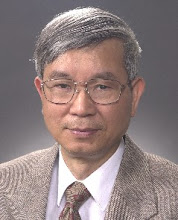華爾街日報, MICHAEL TURTON, April 9,2009
本月稍早的時候,台灣的總統馬英九主持了一場儀式來紀念黃帝,
也就是傳說中所有漢人的祖先。這一事件初看似乎不重要,但它顯示了一個日益增長的趨勢:馬政府正逐漸的重新界定台灣文化,以更多的「中華」來超越台灣。這種隱隱約約對中國官員的致意會削弱台灣獨特文化的特有風貌–而且也會持續延伸到其本身的主權。
因為馬先生承諾要與北京有更緊密的經濟聯繫,他在去年被選為總統,自從那個時候,他已經成功地和中國建立了直接的航空、貨物和郵政的聯繫。然而中國一直認為台灣是其領土的一部分,也有一些台灣人已經開始懷疑馬先生是否為了尋求更良好的關係而放棄太多、也太快了。
他對「中華」文化的擁抱而不是台灣文化,就是其中一個例子。即使在他的就職演說中,馬先生提出的想法是基於「中華民族」的政體,他說:「海峽兩岸都是中華民族。」馬先生的做法是把所有本土台灣文化(其中許多是這個島嶼上本土的,並也已經逐漸擺脫了中華文化),併入一個單一的「中國意識」,並且淡化任何本地獨特之處的主張。
在那次的致詞當中,馬先生歌頌要回到「台灣的傳統核心價值,包括仁愛、正義、勤奮、誠實、慷慨、和勤勞。 」乍聽之下還算不錯。但仔細分析可以發現他雖然援引「台灣 」兩字,馬先生實際上是意指儒家的核心價值觀,並把台灣島嶼定位在一個大中華文化潮流的範圍內。
而這個就職演說只是一個開始。在過去的一年裡,馬先生曾多次參加儀式並借著儒家政體典禮的象徵展示了馬政府的中國性。在總統主持了紀念黃帝的儀式之後,總統發言人宣布,因為祭拜祖先對中華民族是非常的重要,所以總統才會決定親自帶領儀式的進行,這也使他成為第一位台灣的總統做這樣的動作。
相同的,馬先生也在去年的10月主持孔子誕辰的紀念儀式。他經由大門進入了台北孔廟,傳統上這通常只有保留給皇帝的;馬先生也同時受到了一個被用來頂禮膜拜皇帝的舞蹈來迎接。通過這些行為,馬先生援用孔子作為一個中國意識的象徵,而不是作為一種新社會的道德秩序。
經由宗教儀式和口頭表達的中國意識,馬英九正具體的附和北京以文化為基礎來主張台灣是中國的一部分的。這些行動是對北京的官員強有力的保證,他們密切的注意馬先生的行動,觀察他是否有任何跡象可能偏離台灣被中國併吞的道路,或者偏離國民黨在台灣的守舊派,他們也是支持併吞的。
馬先生並不是第一個國民黨的領導人這樣做。國民黨以前接受「中國意識」是為了完全不同的原因:從1950年代到1970年代時,國民黨的獨裁領導制度為了確立它對台灣的統治,宣稱台灣是「中國」 ,並殘酷的鎮壓當地的意識。能夠接受本土的身份和特性是在1990年代台灣邁向民主的過渡期才開始的。
鑑於這一歷史,聲稱海峽兩岸的人民屬於中華民族顯然是殖民主義的:如果稱呼某人是屬於中華民族,就是為了確定這些人和他們的領土都是中華民族的一部分。因此,中國民族主義者經常會界定這些不同的民族如滿族、藏族、蒙古族、維吾爾族、和台灣的原住民都是「中華民族」,因此,不可避免地,也是中國的一部分。對中國人來說,不斷的提及他們海峽兩岸的「兄弟姐妹」就是要以這種語言讓中國併吞台灣的動作合法化。
從這個角度來看,台灣人是和中國人最不同的異議份子,他們不僅主張民主的價值觀反對獨裁專制,也對中國意識本身的最核心持反對的意見:也就是漢人必須是中國政權一部分的基本想法。大多數的台灣民眾認為自己是台灣人。想要說服他們,也同時安撫北京,將是馬先生要面臨的一個重大的挑戰。
By MICHAEL TURTON | From Wall Street Journal Asia 4/9/2009.
Earlier this month Ma Ying-jeou, the president of Taiwan, presided over a ceremony honoring the Yellow Emperor, the mythical ancestor of all Han Chinese. This event may seem minor at first blush, but it demonstrates a growing trend: The Ma administration is gradually redefining Taiwanese culture as more "Chinese" than Taiwanese. This subtle nod to China's mandarins undercuts Taiwan's unique cultural identity -- and by extension, its very sovereignty.
Reuters
Chinese culture warrior: Ma Ying-jeou observes Confucius's birthday, Sept. 28, 2005.
.Mr. Ma was elected last year by promising closer economic ties with Beijing, and since then he has succeeded in establishing direct air, cargo and postal links to China. But China considers Taiwan to be part of its territory, and some Taiwanese are starting to wonder if Mr. Ma has given up too much, too fast in his quest for better relations.
His embrace of "Chinese" culture, as opposed to Taiwanese culture, is just one example of this. Even in his inaugural address, Mr. Ma raised the idea of a racially based polity, the zhonghua minzu, or "Chinese people," saying that "both sides of the Strait are zhonghua minzu." Mr. Ma's approach thus incorporates all local Taiwanese cultures -- many of which are indigenous to the island and emerged separately from Chinese culture -- into a single "Chinese-ness," downplaying any claims of local uniqueness.
In that address, Mr. Ma lauded a return to "Taiwan's traditional core values of benevolence, righteousness, diligence, honesty, generosity and industriousness." Fair enough. But a closer look shows that while invoking "Taiwan," Mr. Ma was actually indexing core Confucian Chinese values, positioning the island within the greater stream of Chinese culture.
The inaugural address was just the beginning. Over the past year, Mr. Ma has on several occasions participated in ceremonies that show the Chinese-ness of his government by positioning it within the ritual symbolism of a Confucian polity. After the president officiated at the ceremony honoring the Yellow Emperor, a presidential spokesman announced that because worship of the ancestors was important to the Chinese people (zhonghua minzu), the president had decided to personally lead the ceremony -- making him the first Taiwanese president to ever do so.
Similarly, last October Mr. Ma presided over ceremonies for Confucius's birthday. He entered Taipei Confucius Temple through a door traditionally reserved for the emperor, and was greeted with a dance once used to pay homage to the emperor. Through these acts, Mr. Ma invoked Confucius as a symbol of Chinese-ness, not as a new moral order for society.
By engaging in ritual and rhetorical expressions of Chinese-ness, Ma concretely aligns himself with Beijing's increasingly culturally based claim that Taiwan is part of China. These actions are a strong reassurance to officials in Beijing, who watch Mr. Ma's actions closely for any sign that he might stray from the path of annexing Taiwan to China, as well as to the Kuomintang old guard in Taiwan, who also support annexation.
Mr. Ma is not the first Kuomintang leader to do this. The KMT embraced "Chinese-ness" for an entirely different reason: From the 1950s to the 1970s the dictatorial KMT-led regime legitimated its rule over the island by declaring that Taiwan was "Chinese," brutally suppressing local identities. Acceptance of local identities grew after Taiwan's transition to democracy in the 1990s.
Given this history, the claim that the people on both sides of the Strait belong to the zhonghua minzu is clearly colonialist: To say that someone belongs to the zhonghua minzu is to assert that they and their territory are part of the Chinese nation. It is thus common to hear Chinese nationalists define such disparate peoples as Manchus, Tibetans, Mongolians, Uighurs and Taiwanese indigenous peoples as "Chinese" and therefore, inevitably, part of China. To the Chinese, who constantly refer to their "brothers and sisters" across the Strait, this language legitimates China's drive to swallow Taiwan.
Seen from this perspective, Taiwanese are the ultimate Chinese dissidents, not merely asserting democratic values against authoritarianism, but dissenting from the very core of Chinese-ness itself: the fundamental idea that Sinitic peoples must be part of a Chinese polity. The majority of Taiwan's citizens see themselves as Taiwanese. Convincing them otherwise while placating Beijing will be a major challenge for Mr. Ma.
Mr. Turton is a Ph.D. student in international business at Cheng Kung University in Tainan, Taiwan.
Subscribe to:
Post Comments (Atom)

No comments:
Post a Comment